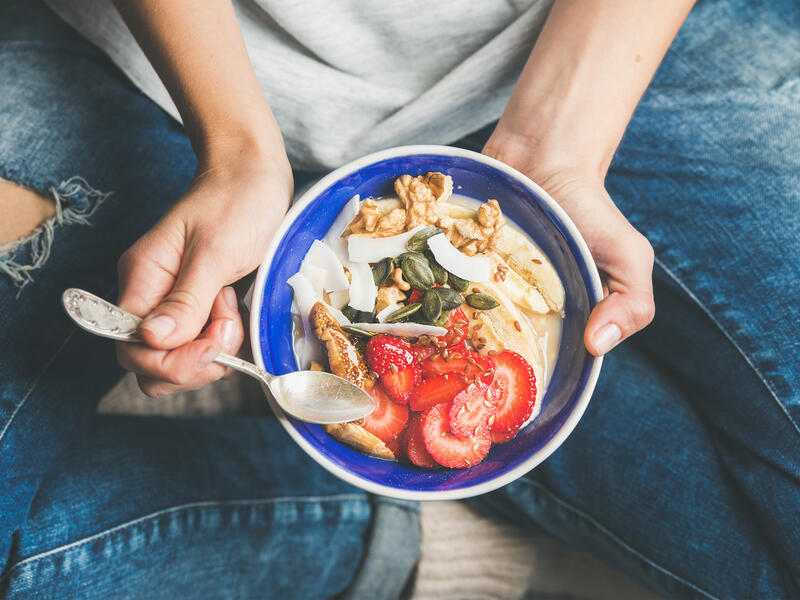Eating well under normal circumstances can be a challenge for most people, but add a growing baby and a diet of natural foods can sometimes go out the window.
Eating healthy when you are pregnant is essential for both you and your baby. Check out these categories and try to fill your diet with the good food examples that go with them.
Lean meats
The amino acids in protein are the building blocks of every cell in your and your baby’s bodies. Protein also helps keep your hunger at bay by stabilizing your blood sugar. Aim for three servings of protein a day, or about 75 grams. Lean meat is an excellent protein option, since it is also high in iron, which is critical to help your baby develop red blood cell supply and support yours too.
Whole grains
Enriched, whole-grain breads and cereals are fortified with folic acid and iron and have more fiber than white bread and rice. Examples include oatmeal for breakfast or brown rice for supper.
Beans
Besides providing protein and fiber, beans are good sources of key nutrients, such as iron, foliate, calcium and zinc. Add black beans, white beans, pinto beans, lentils, black-eyed peas, and kidney, garbanzo, or soybeans to your diet. Try them in chili and soups, salads and pasta dishes.
Salmon
Omega-3 fatty acids are good for your baby’s brain and eyes, and salmon is a great source. Plus it provides protein and B vitamins. Salmon is also relatively low in mercury compared to other fish. Try it grilled, broiled or on a salad. You can safely eat up to 12 ounces of low-mercury fish, such as salmon, per week.
Eggs
Eggs are versatile and a good source of protein that provides amino acids you and your baby need. They contain more than a dozen vitamins and minerals, including choline, which is good for baby’s brain development. However, be sure not to eat undercooked or raw eggs.
Berries
Blueberries, raspberries and blackberries are delicious snacks and taste great in pancakes and on top of cereal. Berries are packed with vitamin C, potassium, folate and fiber.
Low-fat yogurt
One cup of plain, low-fat yogurt has more calcium than milk, is high in protein, and doesn’t have the added sugar of flavored yogurts. You can add fruit or a crunchy, whole-grain cereal.
Learn more
- You can have a happy and healthy plus-size pregnancy
- How to ease morning sickness
- Practice mindful eating with your family
…
Posted In Health Information, Nutrition, Pregnancy, Women's
